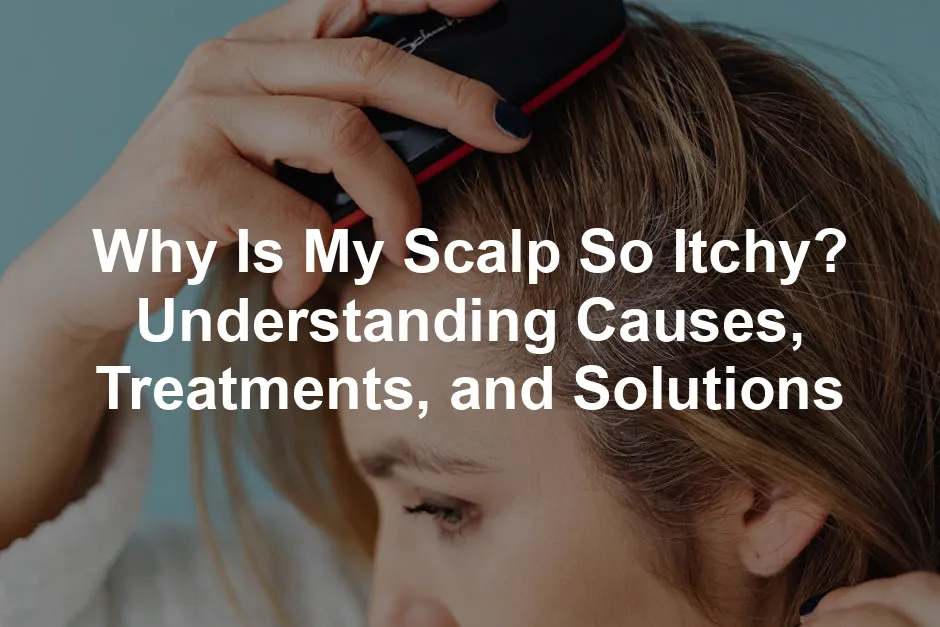
Why Is My Scalp So Itchy? Understanding Causes, Treatments, and Solutions
Introduction
Is your scalp feeling itchy? You’re not alone. Many people face this discomfort daily. An itchy scalp can be annoying and distracting, often leading to excessive scratching. In this article, we’ll discuss common causes of an itchy scalp, explore treatment options, and help you identify when it’s time to see a professional. Let’s get started on finding relief!
Summary and Overview
An itchy scalp, also known as scalp pruritus, refers to the unpleasant sensation that urges you to scratch. Common symptoms include flakes, redness, and irritation. Identifying the underlying cause is crucial for effective treatment. Causes can range from simple issues like dandruff to more serious conditions such as psoriasis or allergies. In this article, we’ll cover various potential causes, including dandruff, seborrheic dermatitis, and allergic reactions to hair products. We’ll also discuss treatment options and when to consult a healthcare professional for persistent symptoms.
Common Causes of Itchy Scalp
1. Dandruff
Dandruff is a common condition affecting many people. It manifests as flaky skin that falls from the scalp. Symptoms include itching and visible white flakes on your clothes or hair. Dandruff often occurs due to oily skin or an overgrowth of yeast on the scalp. Stress, hormonal changes, or seasonal changes may also trigger it. Treatment typically involves using medicated shampoos containing active ingredients like zinc pyrithione or selenium sulfide. Regular washing and proper scalp care can help manage this condition effectively. If over-the-counter options don’t work, consult a dermatologist for stronger treatments.
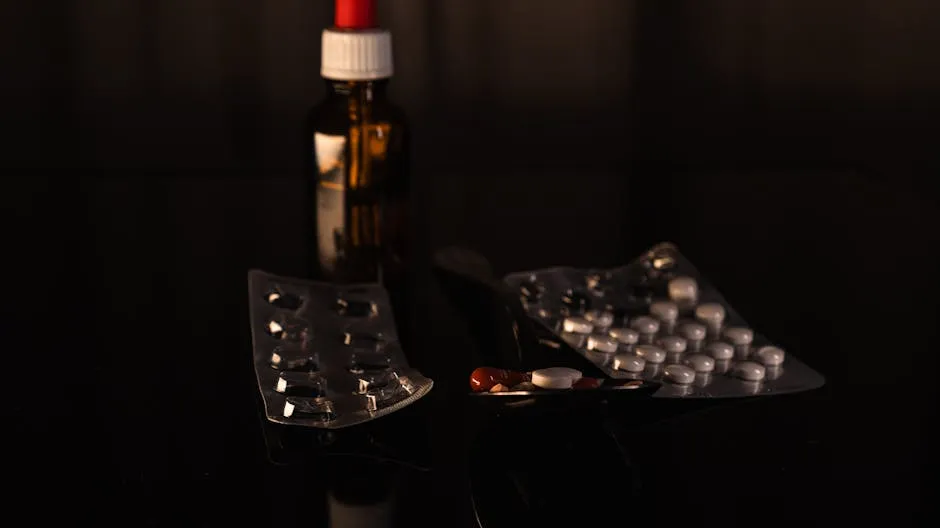
For a reliable solution to dandruff, consider Neutrogena T/Gel Therapeutic Shampoo. This shampoo is clinically proven to fight dandruff and scalp itching, making it a top choice for those looking for effective relief.
2. Seborrheic Dermatitis
Seborrheic dermatitis is a common skin condition, often linked to dandruff. It causes oily, scaly patches on the scalp, leading to intense itching. Symptoms include red, inflamed skin and yellow or white flakes. Triggers can range from stress and hormonal changes to an overgrowth of yeast on the scalp.
Treatment typically involves over-the-counter shampoos, like those containing zinc pyrithione or selenium sulfide. If these don’t help, dermatologists may prescribe stronger topical treatments like corticosteroids or antifungal creams. Regular washing and proper scalp care can significantly improve symptoms.
3. Allergic Reactions to Hair Products
Hair dyes, shampoos, and conditioners can lead to scalp irritation, often causing an itchy reaction. Ingredients like fragrances and colorants are common culprits. Symptoms of allergic reactions may include redness, bumps, and a burning sensation.
To identify irritants, try eliminating products one at a time, observing any changes. If you suspect an allergy, consult a dermatologist. They can perform tests to pinpoint the allergen. Switching to hypoallergenic or natural products can also help minimize irritation. A great option to consider is Dove Sensitive Scalp Shampoo, designed specifically for sensitive skin.
4. Head Lice
Head lice are tiny insects that thrive on the scalp, feeding on human blood. They spread through close contact or sharing personal items like combs. Symptoms include an itchy scalp, irritability, and sores from scratching.
Treatments include over-the-counter shampoos containing pyrethrin or permethrin. For persistent cases, prescription options like benzyl alcohol lotion may be necessary. Regular combing to remove lice and nits is essential for effective treatment and preventing re-infestation. Consider using Licefreee Spray for a non-toxic solution to eliminate lice.
5. Scalp Psoriasis
Psoriasis is a chronic autoimmune condition that can affect the scalp. It leads to dry, red patches covered with silvery scales, causing significant itchiness. Triggers may include stress, infections, or skin injuries.
Treatment options vary from over-the-counter medicated shampoos with salicylic acid to prescription creams containing corticosteroids or vitamin D analogs. Light therapy may also be beneficial for severe cases. Regular consultation with a dermatologist is key for managing this condition effectively.
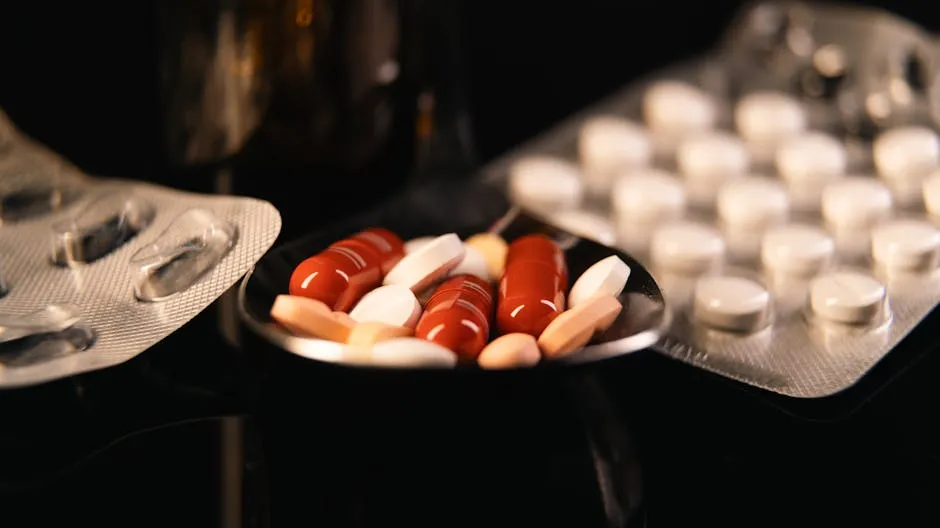
6. Fungal Infections (Ringworm)
Scalp ringworm, known as tinea capitis, is a fungal infection. It often appears as red, itchy patches on the scalp. You might notice hair loss in affected areas, leading to bald spots. Other symptoms include scaling and inflammation. Children are particularly prone to this infection.
Ringworm spreads easily through direct contact. Sharing hats, combs, or towels can transmit the fungus. Even contact with infected pets can lead to infection. Treatment typically requires oral antifungal medications, as over-the-counter options may be ineffective. A healthcare provider can guide you through the best treatment plan. Consider using Nizoral A-D Anti-Dandruff Shampoo for effective treatment of fungal infections.
7. Contact Dermatitis
Contact dermatitis is an itchy rash caused by contact with allergens or irritants. Common culprits include hair products, dyes, and certain shampoos. Symptoms often include redness, swelling, and a burning sensation. In severe cases, blisters may form.
To treat contact dermatitis, avoid the irritant. You can apply topical corticosteroids to reduce inflammation and itching. Antihistamines may help alleviate symptoms as well. If symptoms persist or worsen, consult a dermatologist for further evaluation and guidance.
8. Stress and Anxiety
Did you know that stress and anxiety can make your scalp itch? When you’re stressed, your body can react in unexpected ways. This might include increased itchiness on your scalp. Scratching can worsen the problem, leading to irritation or even skin damage.
Coping strategies can be beneficial. Consider practicing mindfulness, meditation, or deep breathing. Regular exercise can also help reduce stress levels. If anxiety persists, therapy or medication may be necessary. Speaking with a healthcare professional can provide tailored strategies for managing your symptoms. You might also want to incorporate an Essential Oil Diffuser to create a calming atmosphere at home.
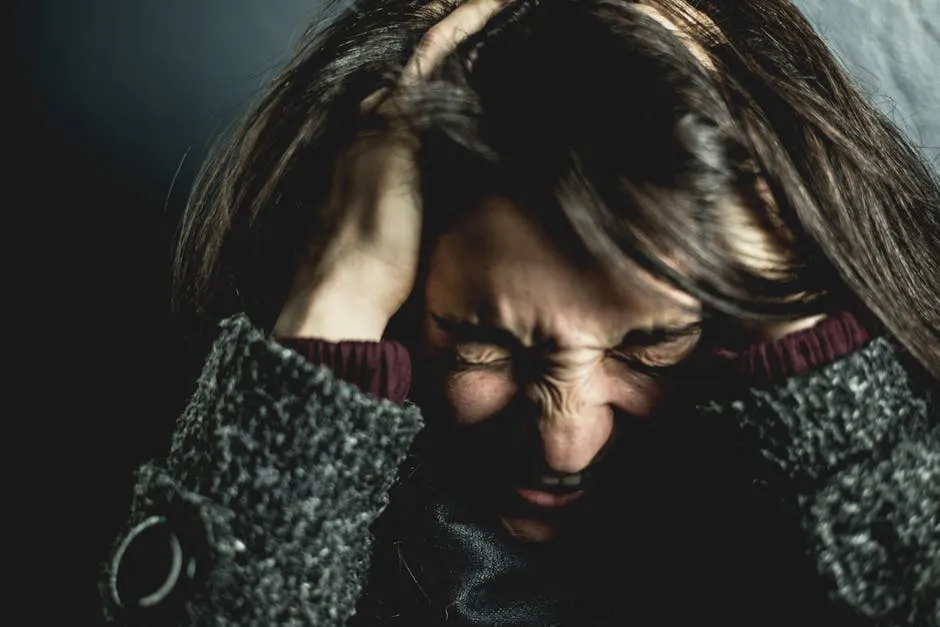
9. Other Medical Conditions
Various medical conditions can lead to scalp itchiness. For instance, diabetes can cause nerve damage, resulting in itchy sensations. Skin conditions like eczema or psoriasis may also contribute to discomfort. Thyroid issues and liver disease are other possible causes.
If your scalp itchiness persists, seek medical advice. A healthcare professional can help identify the underlying cause and recommend appropriate treatment. Early intervention is essential for effective management of these conditions.

Treatment Options
1. Over-the-Counter Treatments
Over-the-counter treatments for an itchy scalp include medicated shampoos and topical creams. Look for those containing ingredients like salicylic acid or zinc pyrithione. These products can help alleviate symptoms by targeting underlying issues. Always follow label instructions for best results. If your symptoms persist, consider consulting a dermatologist for further advice. A popular choice is Head & Shoulders Dry Scalp Care Shampoo, which is designed to relieve dryness and itching.
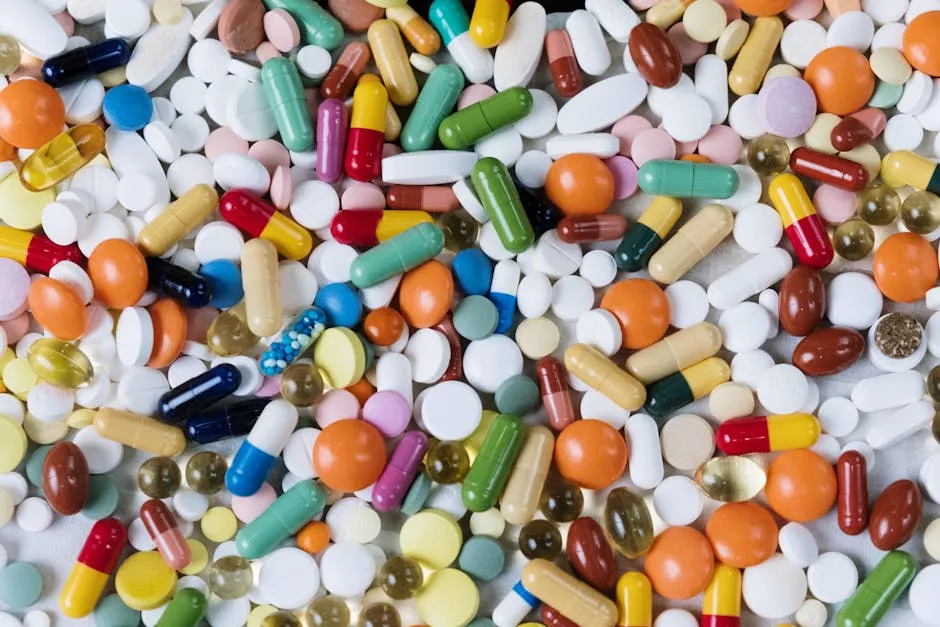
2. Prescription Treatments
If over-the-counter remedies don’t provide relief, it may be time to seek professional help. Dermatologists can diagnose the root cause of your itchy scalp and recommend effective prescription treatments. Options may include topical corticosteroids, which reduce inflammation and itching. Antifungal creams can treat infections, while stronger medicated shampoos may be necessary for conditions like psoriasis or severe seborrheic dermatitis. Always consult a healthcare provider before starting new treatments to ensure they are appropriate for your condition.
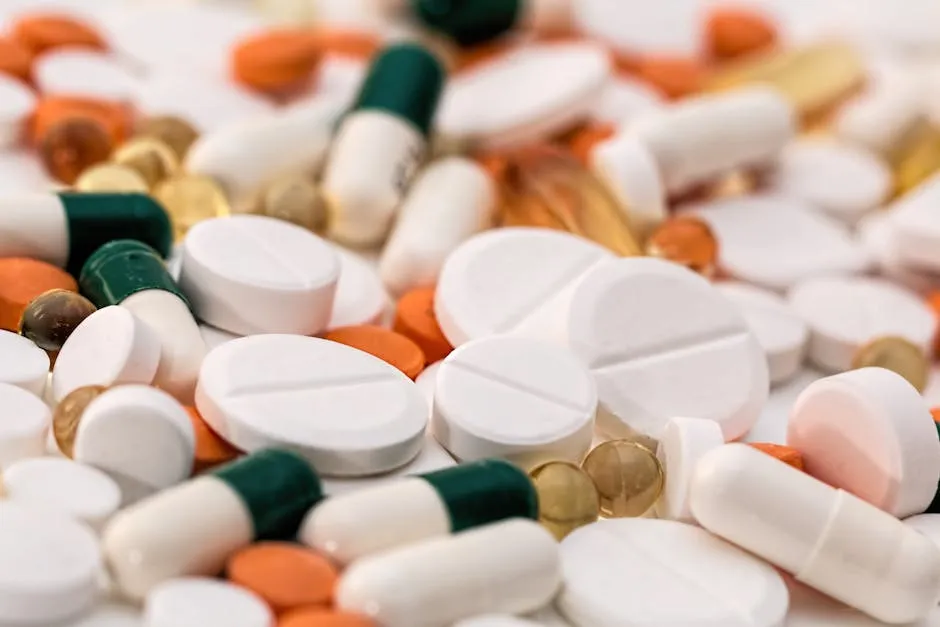
3. Home Remedies
Many individuals find success with home remedies for an itchy scalp. Coconut oil is a popular choice due to its antifungal properties. Simply massage it into your scalp and let it sit for about 30 minutes before washing out. You can find high-quality organic options like Coconut Oil (Organic Extra Virgin). Apple cider vinegar can also provide relief; mix equal parts with water and apply it to your scalp. Let it sit for a few minutes before rinsing. Other effective options include tea tree oil, known for its antimicrobial benefits, and peppermint oil, which can soothe itching. Always do a patch test first to avoid allergic reactions.
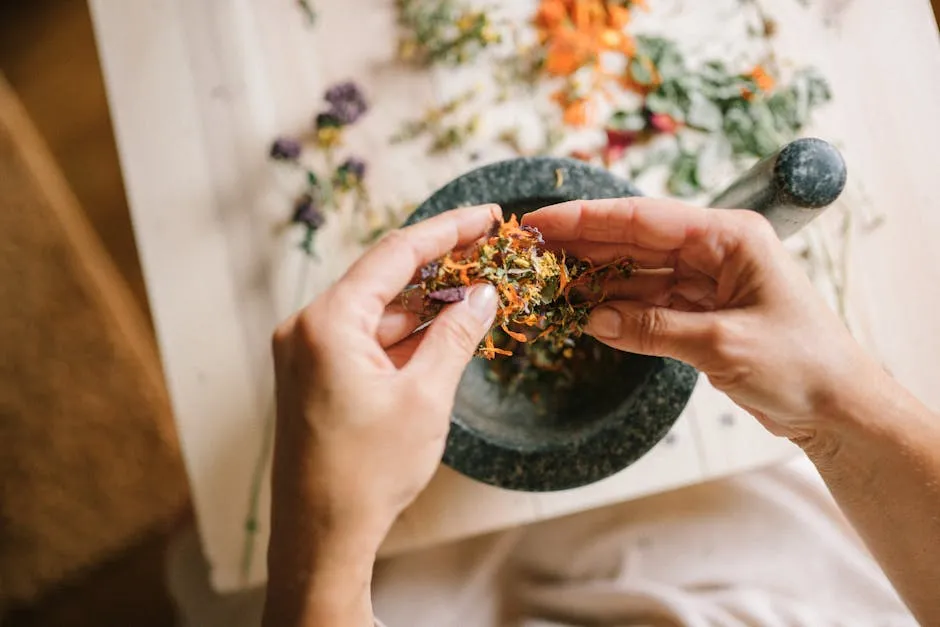
Using tea tree oil can be beneficial for its antimicrobial properties, which may help soothe an itchy scalp.
When to See a Healthcare Provider
Certain symptoms indicate when it’s crucial to consult a healthcare provider. If your scalp itchiness lasts longer than a week or is accompanied by severe redness, swelling, or bleeding, seek medical attention. Additionally, if you notice hair loss, painful sores, or if the itching disrupts your daily life, don’t hesitate to reach out. These signs may suggest a more serious underlying condition. A healthcare professional can provide a thorough evaluation and tailored treatment options to address your concerns effectively.

Conclusion
Identifying the cause of your itchy scalp is essential for effective treatment. Whether it’s dandruff, an allergic reaction, or a more severe condition, understanding the root issue can guide you to the right solutions. If symptoms persist or worsen, seeking medical advice is crucial. Remember to prioritize proper scalp care and hygiene to maintain healthy skin. Don’t hesitate to share your experiences in the comments or consult a professional for personalized support. Also, consider treating your scalp with Herbal Essences Bio:Renew Shampoo for a refreshing cleanse.
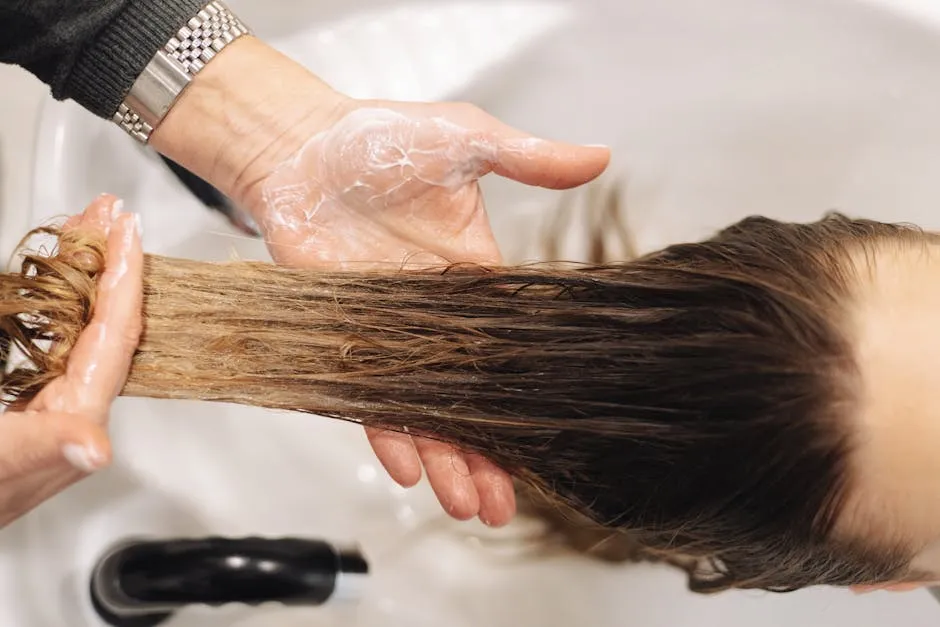
FAQs
What causes an itchy scalp without dandruff?
An itchy scalp without visible dandruff can stem from various issues. Contact dermatitis is a common cause, often due to hair products containing allergens. You might experience redness or a burning sensation. Another possibility is scalp psoriasis, which causes red patches and scales. Stress can also trigger itchiness, leading to increased sensitivity. In rare cases, underlying medical conditions like diabetes can result in scalp irritation. Treatment usually involves identifying the irritant, using soothing shampoos, or trying topical corticosteroids. If the problem persists, consulting a dermatologist is advised.
Can stress lead to an itchy scalp?
Yes, stress can significantly impact scalp health. When you’re under pressure, your body reacts in various ways, including heightened itchiness. This occurs due to increased inflammation and sensitivity. Cortisol, the stress hormone, can exacerbate existing conditions like psoriasis or eczema, intensifying the itch. Coping strategies are essential. Consider mindfulness practices, yoga, or regular exercise to manage stress levels. Engaging in relaxing activities can help alleviate both mental strain and itchy sensations. If stress-induced itchiness persists, seek guidance from a healthcare professional for tailored advice.
How can I relieve an itchy scalp quickly?
For quick relief from an itchy scalp, start by using a soothing shampoo with ingredients like tea tree oil or aloe vera. These can calm irritation effectively. Applying coconut oil can also provide relief; its antifungal properties help soothe the scalp. For immediate itch relief, consider a cold compress. It works wonders by numbing the area and reducing inflammation. Over-the-counter antihistamines may help if allergies are the cause. Always follow the product instructions for the best results. If itchiness persists, consulting a healthcare provider is crucial.
When should I consult a dermatologist for my itchy scalp?
Consult a dermatologist if your itchy scalp lasts longer than a week without improvement. Seek help if you notice painful sores, significant hair loss, or if itching disrupts your daily life. Symptoms like swelling or redness suggest a more serious issue and warrant professional evaluation. If over-the-counter treatments fail, a dermatologist can prescribe stronger medications and help identify underlying conditions. Early intervention is key to preventing complications and ensuring proper scalp health.
Are there any lifestyle changes that can help reduce scalp itchiness?
Yes, several lifestyle changes can improve scalp health and reduce itchiness. First, maintain a regular hair-washing schedule to keep your scalp clean and free from excess oils. Choose gentle, hypoallergenic hair products that suit your skin sensitivity. Staying hydrated is essential, as it helps maintain skin moisture. Incorporating a balanced diet rich in omega-3 fatty acids can also benefit your scalp. Additionally, manage stress through relaxation techniques like meditation or exercise. These changes can significantly enhance your overall scalp health and reduce irritation.
Please let us know what you think about our content by leaving a comment down below!
Thank you for reading till here 🙂
All images from Pexels




